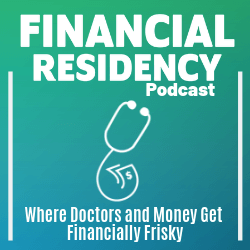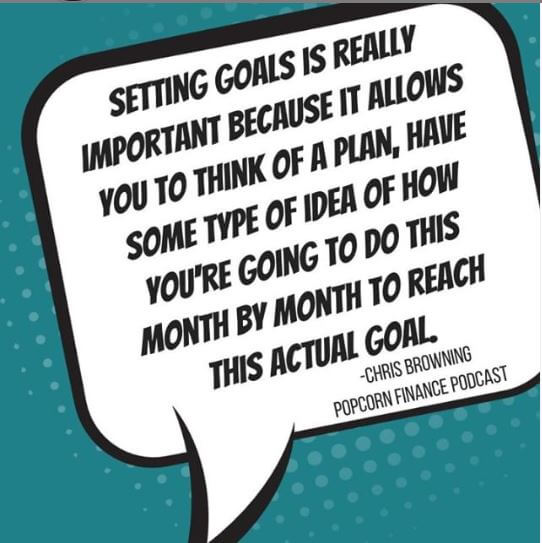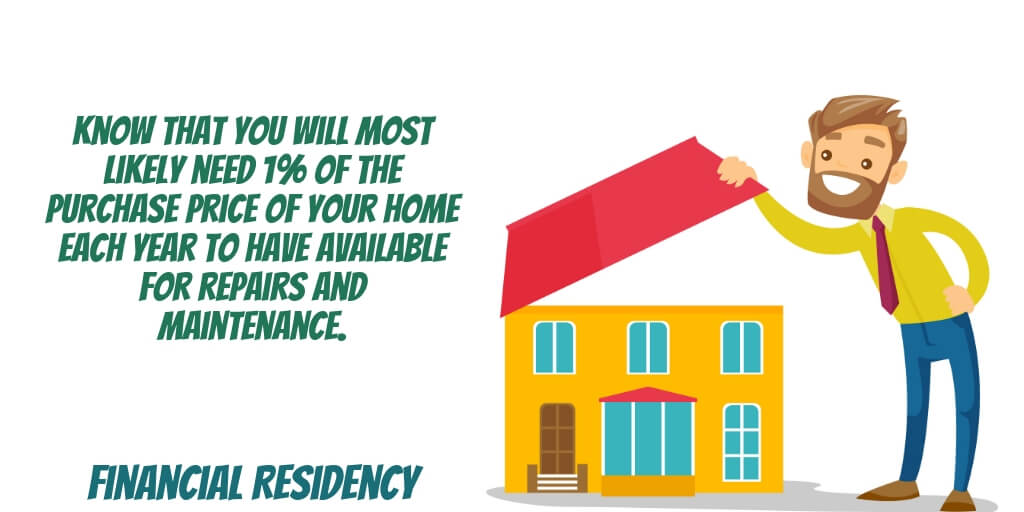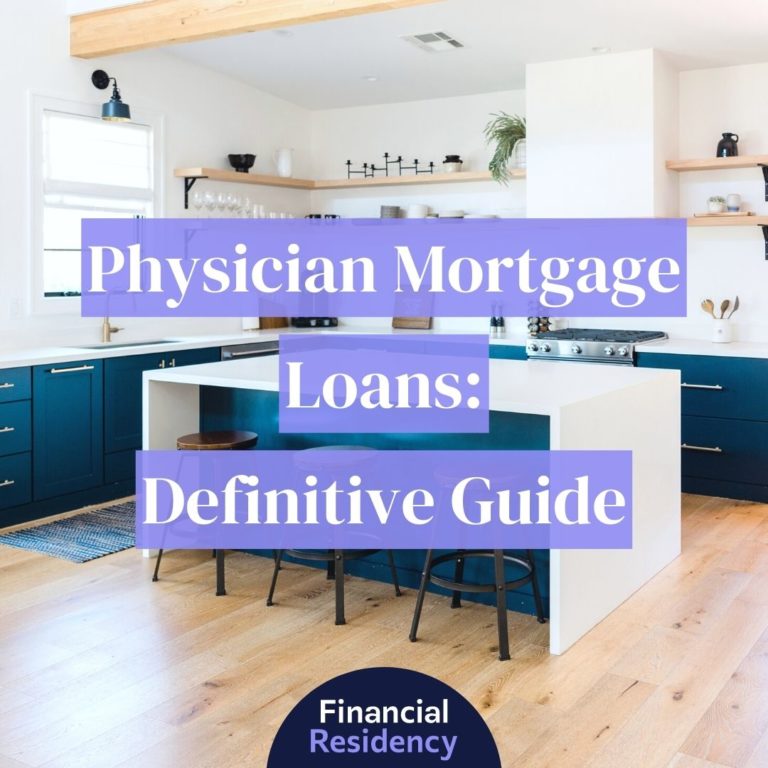It is an undisputed fact that there is a student loan crisis in this country. Lenders are handing out very large loans with little to no debt counseling. College education cost so much that most people can’t afford to go without borrowing large amounts of money. And then there’s medical school, which is its own special kind of expensive.
It’s not surprising that many newly minted doctors don’t think they can ever buy a home, let alone afford to buy one so soon after completing medical school. Medical school loans average $190,000 in this country, which can take decades to repay.
 So where does owning a home fit in? How does a person with a large debt save for a down payment? And once you’re in the home, how do you find the money each month to cover needed expenses to maintain the home?
So where does owning a home fit in? How does a person with a large debt save for a down payment? And once you’re in the home, how do you find the money each month to cover needed expenses to maintain the home?
Why buy a home at all
It’s easy to fall into the mindset of someone who has a lot of debt and very little cash, and think you can’t possibly own your own home. The way forward is to reshape your thinking. Yes, student loans loom large. Yes, it takes many years to repay them. Yes, that debt can overshadow many other future plans, like starting a family or simply taking a vacation.
But, once you understand some of the benefits of home ownership and how owning your own home can help improve your overall quality of life as well as your financial portfolio, buying a home is something you may want to consider.
All homes cost money to initially buy them, usually in the form of a down payment, fees, and insurance. All homes also have some great things in common, such as equity, potential tax breaks, stability and peace of mind, and stable monthly payments and expenses.
Because the pros and cons of home ownership can vary for everyone, the best bet for you is to read on so you are armed with the knowledge you need to make the best decision for your situation.
But, the student loans
Student loans are massive and they affect every area of your life because they limit your spending and can start to feel as though they are limiting your dreams.
However, large student loan debt is not an impossible mountain to climb. There are debt repayment programs available to help maximize your payments over time, so while student loans can be a hindrance, they do not have to be crippling.
Despite the debt, owning your own home is something to consider.
The important things to remember when starting the home-buying process are:
- Don’t buy too much home; and
- Make sure you understand your debt.
What is too much home
What constitutes too much home is entirely up to you. If you don’t already have a monthly budget, take a moment to sit down and list your monthly income and expenses. Be honest with yourself, don’t forget to save for retirement and include some money to do things you enjoy, and make sure your needs are covered.
Then use a free online calculator to see what different monthly mortgage payments would look like with different terms. Check with a lender to see what some typical interest rates look like for physician loans in particular, and know that a physician loan typically does not include PMI or much of a down payment. You will likely be able to get into a house for as little as zero to 5% down when qualifying as a physician.
Don’t stretch and end up spending more than you’re comfortable with, even though plenty of people will want you to try. Everyone from friends and family to real estate agents and lenders will have an opinion on what you can and should spend. They may mean well, but you are the one who has to live with the commitment of a monthly mortgage.
Don’t use the full loan amount
What is “too much home” anyway? Consider that most lenders will look at your financial situation holistically. They will consider what you have and what you owe.
If you work with a lender who specializes in physician mortgage loans, they may be able to qualify you for the loan without taking your student loans into account. This is great news and is the key to being able to afford a home loan at all.
Keep in mind that lenders generally qualify strong applicants for more money than may be comfortable paying on a monthly basis. Remember, the lender does not have to live your life on your budget.
Lenders make a fiduciary determination about the level of risk they take with you as a borrower and offer you an amount that is mathematically and statistically sound. But you are the one who has a budget to keep and a lifestyle to maintain. You can always borrow less than the lender is willing to lend.
Why should you avoid buying too much house?
Once you sign on the dotted line, a lot of exciting things happen. You get the keys to your new home. You might receive a bottle of champagne. You know you have a home waiting for you that you can decorate however you like. That home will provide physical shelter as well as emotional warmth.
But every month, month after month, there is a payment that must be made. That payment will include the principle on the loan and the interest. It may also include your property taxes, should you choose to roll them into your monthly payment (you can also pay them directly twice a year if you wish).
You may have homeowner’s association fees. You will have utilities for which to pay. Until you have owned a home and know what those expenses are like, it’s best to under-buy and get something a little smaller and maybe a little cheaper than you might otherwise so you still have some flexibility in your budget.
Talk to a lender
Lenders are a great resource. Yes, they have a vested interest in selling you something in the form of a thirty-year financial commitment, but they also are professionals who are working to build a long-term business relationship with you.
They will be able to give you solid information on what interest rates are available, what type of loan terms for which you can qualify, and can crunch a lot of numbers to give you an idea as to whether a fixed rate or adjustable rate mortgage is best for you. They will also estimate what your monthly payment will look like depending on how much money you put down.
How to budget for home costs
The cost of a home is much more than the sale price. When considering how much home you can afford, be sure to take the following expenses into consideration.
Principle
The principle is the actual amount of dollars that you borrow and have to pay back.
Interest
Think of interest as the fee you pay to the lender in exchange for their lending you the principle needed to purchase the home.
Taxes
Property taxes must be paid on every home. The amount varies based on home value as well as the geographic location in which the home is located. Property taxes persist even after the mortgage loan is paid in full. You are always essentially renting your property back from the government.
Insurance
In order for a lender to offer you a mortgage, they need to know that this investment will be protected. You will be required to carry homeowner’s insurance and show proof of this to the lender prior to closing the sale. The cost of insurance will vary but is generally based on the value of the home and the contents of the home.
HOA fees
Many properties, particularly those in condominium buildings or planned communities, have a homeowner’s association (HOA). The goal of the HOA is to maintain certain standards of maintenance and aesthetics throughout the property so as to keep property values up.
The fees also go towards amenities that your HOA may have, such as a pool or trash pickup. The fees may cover community property such as roofs, if your property is in a multi-unit building, or grounds keeping. These fees are not optional.
Make sure you ask your lender to find out the amount of the fees and whether they are due monthly or quarterly, as well as what you get for your money, so you can make an informed decision about whether or not you wish to live in that community.
Repairs and maintenance
Every home, whether it is a detached house or a condominium, requires regular maintenance. Some elements of the home, such as the heating and cooling system, require regular maintenance to run most efficiently. All elements, including windows, appliances, plumbing, gutters, paint, and the list goes on, will need repair or replacing at some point in the life of the home.
Make a list of the items in your home that will likely need to be repaired, maintained, or replaced at some point, and research the estimated life span of each item. Know that you will most likely need 1% of the purchase price of your home each year to have available for repairs and maintenance.

Utilities
When considering how much home one can afford, people often forget to consider the cost of utilities. Electricity, possibly gas, and water are the most basic utilities needed by everyone. You will most likely also need Internet service, as well as potentially cable or phone (unless you have decided to cut the cord and go all Internet all the time).
Electricity might be the biggest wild card, and is the most dependent on where you live geographically. Someone in Texas or Georgia will have a higher electric bill in the summer than someone in a northern state, like New Hampshire.
This is simply due to climate. The hotter the summer, the more you will need to run your air conditioning to stay cool. The opposite is true of winter. People with longer, colder winters will have higher heating bills, be it electricity, oil, or gas, depending on the type of home they buy.
The size of the home matters, too. The cost of heating and cooling a 1,000 square foot home is considerably less than the cost of heating and cooling a 3,000 square foot home.
You can ask your real estate agent to provide estimated utility costs from the previous owner.
How will income-based repayments be affected?
Once you have decided to buy a home, be sure to check in with your financial advisor to arm yourself with information on how your student loan payments may be affected.
Your monthly payments will rise substantially once your salary increases, and your planner can help you prepare for that. Don’t worry, you can still buy a home. The key is to be prepared with knowledge of how the loans work so you can maximize the benefits of them.
Keep in mind that one of the best parts of a physician mortgage loan is that you can typically qualify without taking your student loans into account. That is a major advantage over the general public.
Wait, what are physician mortgages?
A physician mortgage loan [link to my article on best physician mortgage loans] is simply a mortgage with different standards are required to qualify to borrow the money. This can be a very good deal for you.
With a physician mortgage loan, you may enjoy:
- No prime mortgage insurance, known as PMI
- Little to no down payment
- Qualification for the loan without taking your student loans into account
- Consideration for qualification as if you have a credit score of 700
Physician loan expert Doug Crouse says that a physician mortgage loan makes a lot of sense “if you know you’ll be there long enough to finish residency and then move.” This is a great strategy to maximize your housing dollars because you can take advantage of competitive interest rates and essentially live in your investment.
What’s next
 Ready to jump in and buy a home? Congratulations!
Ready to jump in and buy a home? Congratulations!
Here are some things to think about to ensure you are as prepared as possible.
Don’t take on any new debt. Even opening a new credit card can negatively impact your credit score just enough to affect your eligibility for the most competitive mortgage loan, or can disqualify you altogether. Hold steady with your current financial situation.
Don’t refinance any debt until you close on that house. While shopping for a home and the mortgage that goes with it, do not also refinance any of your loans. Your financial advisor can help you maximize your dollars and payments, so be sure to get some advice. Refinancing or restructuring any of your existing debt can negatively affect your ability to qualify for a mortgage loan, so don’t do that.
Stay current. It may go without saying but, keep paying your bills. Make your student loan payments, pay your credit card bills, make your car payment, and generally do everything you can to keep your current financial situation nice and stable.
Go shopping. Shop around for a house, for a real estate agent, and for a lender. Let the professionals help you by sharing their expertise, and then take your time and make the best decisions for you.
Enjoy your new home, and congratulations on becoming a homeowner!




